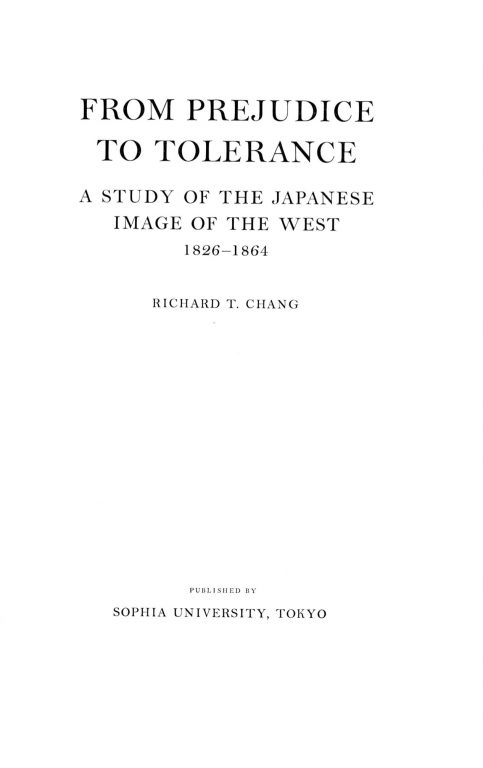From Prejudice to Tolerance: A Study of the Japanese Image of the West, 1826-1864Richard T. Chang
Monographs (1970) pp. 1–237
The transformation of nineteenth-century Japan into a modern nation in response to the challenge from the West was phenomenal, especially when Japan is compared to China or Korea. An impelling force behind this remarkable transformation was the image which the Bakumatsu intellectuals had of the West as a military threat to Japan. Although there was a degree of continuity in the image the Japanese intellectuals held of the West throughout the Bakumatsu and the early Meiji periods, that image underwent gradual but unmistakable changes as increasingly accurate information about the West became available in Bakumatsu Japan.
This monograph is a case study of this change of attitude, which may be seen as a shift from prejudice to tolerance. Dr. Chang analyzes the subjective meanings that the West had for two Bakumatsu intellectuals – Fujita Tōko (1806-55) and Sakuma Shōzan (1811-64) – and attempts to relate their changing images to their actions. To be sure, the image shared by the two deviated from reality. The author maintains that it was not fact, as such, but what the Japanese believed that fact to be which governed their response to the West. Further, his analysis suggests a five-stage continuum of response which may serve as a hypothesis for more extensive studies on the subject of Japan’s response to the West.
1970. xiv + 237 pages.
Hardback ¥2,000/$20.00/€20.00.
